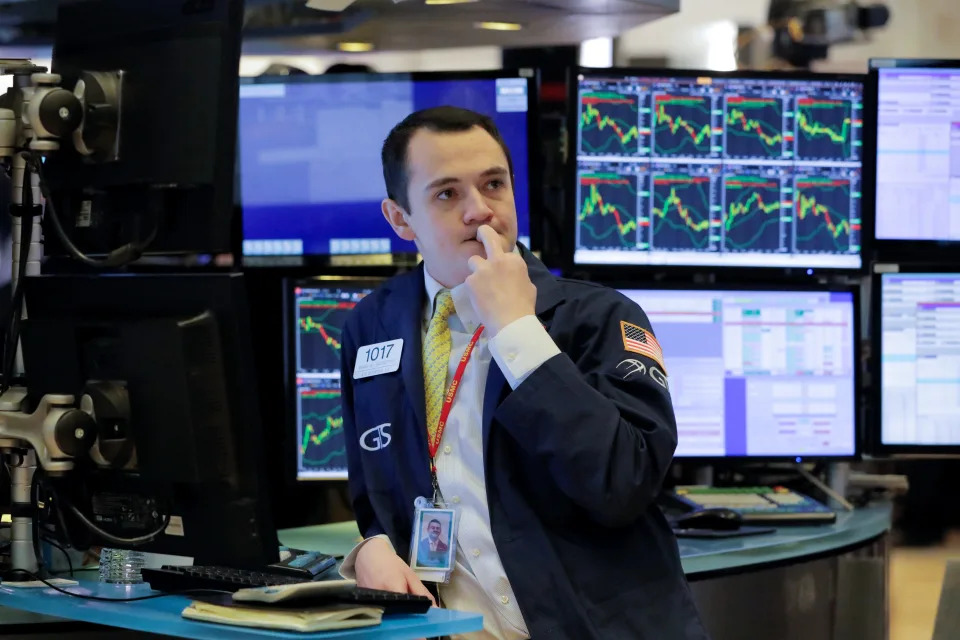The stock market risks keeping Wall Street's biggest bulls up at night

With the S&P 500 trading less than 1% below its record highs, there's plenty to be bullish about on Wall Street.
Inflation is falling back to the Federal Reserve's long-term target, interest rate cuts appear imminent, and corporate earnings, the consumer, and the broader economy are all proving resilient.
But there are plenty of risks, too, with some economists worried about a cooling labor market and a potential recession.
Yet, those economists have been largely wrong about what could sink the stock market and economy.
Business Insider talked to several people who have been right so far in the past few years , including three bullish strategists, to gauge what's worrying them about the stock market as it cruises to fresh records.
Here's what they had to say.
BMO's Brian Belski
For BMO chief investment strategist Brian Belski, his big concern is that he's betting against fewer people in the market as overwhelmingly bearish sentiment just a few months ago has now flipped bullish.
"In May/June, when you had a lot of bears or those that had been late to jump on the bull parade all of a sudden switch their forecasts and kind of chase markets up, which is pretty, I mean pretty, pretty, pretty classic," Belski told Business Insider.
He added: "I just think that too many people are bullish again."
Though it sounds counterintuitive, Belski is worried about the stock market moving significantly higher, not lower, from here, because that would set up a prime environment for a sharp pullback down the road.
"I don't want to see a super spike now. I think the faster the market goes up right now, that would worry me," Belski said.
And with many investors feeling bullish about stocks, the market is more vulnerable to a sell-off if there's a macro surprise that badly misses estimates.
"From a sentiment perspective, we're one bad macro data point away from a pullback," Belski said.
As to what that macro data point could be, a surprise surge in inflation, a really bad jobs report, or a big miss from Nvidia all come to mind for Belski.
Yardeni Research's Eric Wallerstein
Eric Wallerstein, chief market strategist at Yardeni Research, told Business Insider that there are two tail risks that could halt the stock market's advance that should be on investors' radars.
The first one is rising geopolitical tensions.
"Let's say the Middle East blows out, Russia-Ukraine, China-Taiwan, like just the overall geopolitical scene is much more tense," Wallerstein said.
On top of that, populist movements and nationalism are gaining popularity in countries around the world, and that's not great for a globalized economy, according to Wallerstein.
"That just leads to a world with less strand and less growth," Wallerstein said.
The second risk is, similar to Belski's concern, a 1990's type melt-up in the stock market.
"The idea is, valuations expand and you kind of get a blow off top, because the market gets too ebullient, and then that creates the conditions to get a bear market," Wallerstein said.
And the Fed could pour gasoline onto the fire if it cuts interest rates aggressively, according to Wallerstein.
"If they do cut that much, which is such an extreme path of policy, I think that blow off top becomes increasingly likely, and it's definitely something we're worried about," Wallerstein said.
While riding a bubble on the way up isn't a bad thing, it's the sharp and quick downturn that often follows a bubble peak that could lead to a period of significant underperformance for investors.
Carson Group's Sonu Varghese
Sonu Varghese, global macro strategist at Carson Group, told Business Insider that he has been "thinking about rising risks for a few months now."
"We still like equities and haven't changed our overweight, but we've increased our exposure to diversifiers like long-term treasuries and low volatility equities," Varghese said.
Varghese's more defensive portfolio posture is driven mostly by what a policy mistake from the Federal Reserve could look like.
With the inflation fight largely over, and labor market trends broadly weakening, "policy is too tight," Varghese said.
"The risk is that the Fed doesn't act aggressively enough to arrest the labor market downtrend, and instead follows a gradual approach to rate cuts that leaves them further behind the curve. Which also means they'll have to do larger catch up cuts later on (a re-run of what happened in 2022, but from the opposite side," Varghese explained.
While he sees no risk of an imminent recession, he said the risk of a recession will rise within the next six to 12 months if the Fed falls far behind the curve.
"That could potentially impact equities - bad economic data will likely be traded as bad news by investors," Varghese warned.
To be clear, all three of these strategists are sticking with stocks and still have a bullish view of what lies ahead for the market.
But even they worry about the neverending list of potential risks.
Read the original article on Business Insider

